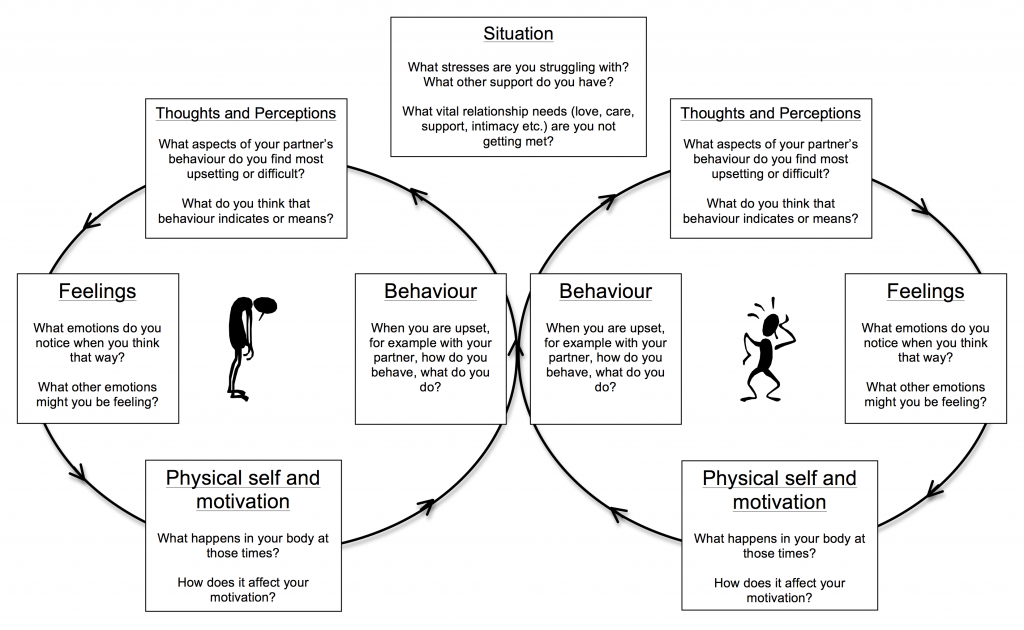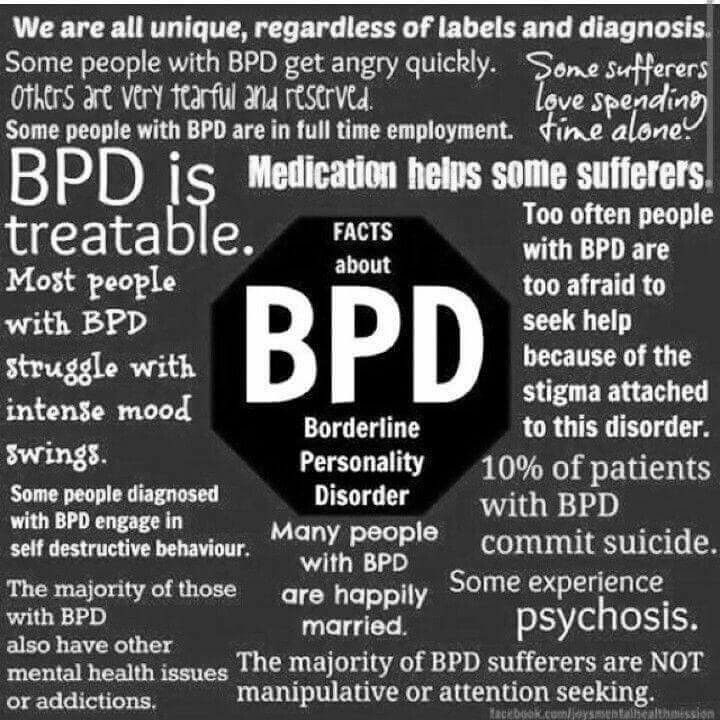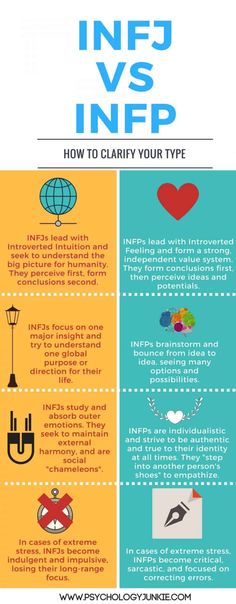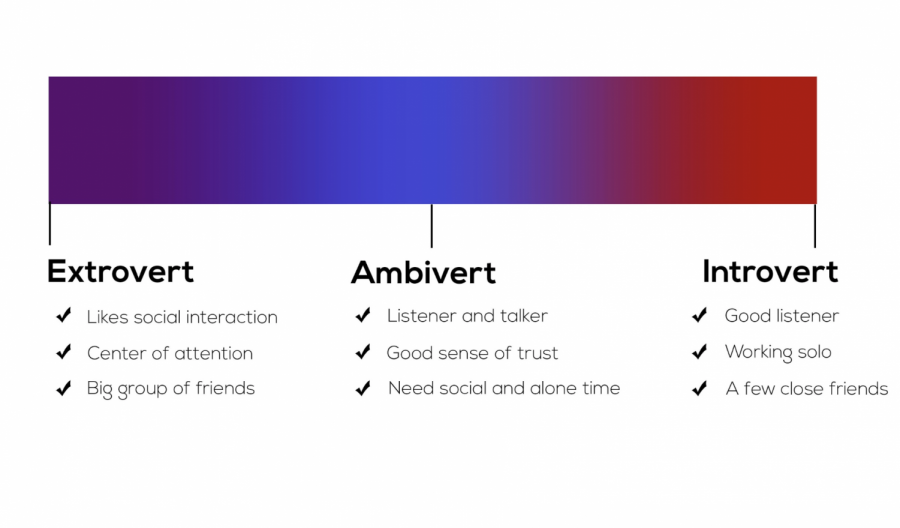Mother daughter struggles
Uncovering the root cause of mother-daughter conflict
An experienced counselor recently admitted to me that she felt out of her depth when a mother and adult daughter both came to see her for help with their incessant arguing. She said that she struggled to identify the core reasons for their arguments, and she knew that the communication skills and boundaries she tried to instill in them did not address the core reasons for their relationship difficulties.
Sadly, this counselor is not alone. Colleagues frequently tell me that they feel unprepared when it comes to working with mothers and daughters. They blame the absence of specialized training. This lack of focus on the mother-daughter relationship creates unnecessary anxiety among counselors and psychotherapists, and frustration for female clients. For example, only in 2016 was the Adult Daughter-Mother Relationship Questionnaire developed (for more, see Julie Cwikel’s article in
The Family Journal). And in my office, all too often I hear mothers and daughters voice their frustrations about the lack of specialized help.
In this article, I share two insights that will help counselors understand the dynamics between a mother and daughter of any age. These insights come from the mother-daughter attachment model I have developed through my 20-plus years of listening to thousands of mothers and daughters of all ages from different countries and cultures. The model makes the complicated dynamics between mothers and daughters easy to understand, explains why mothers and daughters fight, and teaches how mothers and daughters can build strong, emotionally connected relationships.
I chose to specialize in the mother-daughter relationship back in the 1990s because that relationship is central to women understanding themselves. My relationship with my mother had shaped who I was, and when my daughter was born 30 years ago, I knew I had to change the harmful themes that were being passed down the generations. What began as a personal quest became my professional mission.
Mothers and daughters frequently tell me that they feel ashamed about their relationship difficulties. They feel that they “should” be able to get along because popular wisdom tells them that mothers and daughters are supposed to be close. This societal expectation makes mothers and daughters blame themselves for causing their relationship difficulties. The truth is, if my years of experience providing therapy are any indication, many women currently experience mother-daughter relationship conflict.
They feel that they “should” be able to get along because popular wisdom tells them that mothers and daughters are supposed to be close. This societal expectation makes mothers and daughters blame themselves for causing their relationship difficulties. The truth is, if my years of experience providing therapy are any indication, many women currently experience mother-daughter relationship conflict.
Based on the inquiries I receive from mothers and adult daughters from different countries, I believe that a larger, societywide dynamic is contributing to their relationship conflict. Often, I hear “hormones” being blamed as the cause for relationship problems, whether it is the teenage daughter’s or pregnant daughter’s hormones, or the menopausal mother’s hormones. Another common reason mothers and daughters give to explain why they are not getting along is their differing or similar personality traits. I have never found hormones or personality traits to be the core reasons for mother-daughter relationship conflict, however. Rather, I have concluded that society sets mothers and daughters up for conflict.
Rather, I have concluded that society sets mothers and daughters up for conflict.
In the first insight, I show that the mother-daughter relationship is not difficult to understand once we realize that mothers and daughters do not relate in a cultural vacuum. In recognizing that mothers and daughters relate within a sociocultural and multigenerational environment, the dynamics between them become easier to grasp. We see how life events, restrictive gender roles, unrealized career goals, and the expectation that women should sacrifice their needs in their caregiving role all shape how mothers and daughters view themselves and each other and how they communicate. To illustrate this dynamic, I share the story of my work with Sandeep, a young college student from England (name and identifying details have been changed).
In the second insight, I explain how patriarchy’s way of silencing and denying what women need is the root cause of most mother-daughter relationship conflict in different cultures around the world. To illustrate, I share my work with Miriam, a doctor from Sweden who comes from a feminist family (name and identifying details have been changed).
To illustrate, I share my work with Miriam, a doctor from Sweden who comes from a feminist family (name and identifying details have been changed).
Miriam and Sandeep come from different countries and cultural backgrounds, and their families are on opposite ends of the women’s rights continuum, yet their core relationship problem is the same. Both Miriam and Sandeep come from families in which women have not learned how to ask for what they need.
Insight No. 1: Mothers and daughters relate in a sociocultural environment
As is the case with any couple, mothers and daughters rarely fight over what they say they are arguing over. Sandeep and her mother were no exception to this rule. Sandeep was a young college student who lived at home. Her parents immigrated to England from India before Sandeep was born. Sandeep had three brothers, but she was the family’s only daughter.
Sandeep came to see me because she was feeling depressed about how critical her mother was. She was struggling to juggle her college work with the housework her mother and family expected her to do. She said her mother would accuse her of not being a good enough “housekeeper” and not caring enough for her mother when she was ill, which was often.
She was struggling to juggle her college work with the housework her mother and family expected her to do. She said her mother would accuse her of not being a good enough “housekeeper” and not caring enough for her mother when she was ill, which was often.
Sandeep had consulted a counselor before me who had suggested that her mother might be suffering from a personality disorder. I never got to meet Sandeep’s mother and work with her clinically, so I was unable to validate whether this might be the case. Regardless, even if Sandeep’s mother did have this diagnosis, it did not provide Sandeep with the answers
she needed.
Instead, Sandeep needed to understand the multigenerational sociocultural environment in which she and her mother lived. She also needed to understand what was going on in this environment that apparently caused her mother to be so angry and critical, and what caused Sandeep and her mother to believe that it was Sandeep’s responsibility to do all the housekeeping.
When I start working with new clients, I map their mother-daughter history. This is the primary exercise in the mother-daughter attachment model. It is an adaptation of the genogram exercise that family therapists use. The maps focus on the three main women in the multigenerational family, which in Sandeep’s case was Sandeep as the daughter, her mother and her grandmother. I map the experiences the three women have had in their lives, including the gender roles that have defined their lives and limited their choices and power. I also map how the men in the family treat their wives and daughters. Mother-daughter history maps provide an in-depth analysis of the multigenerational sociocultural environment in which the women in the family live and what is happening within that environment to cause mothers and daughters to argue, misunderstand each other, and disconnect emotionally. (Detailed instructions on using this exercise with clients are available in my book The Mother-Daughter Puzzle. )
)
Sandeep talked about her grandmother’s and mother’s lives and arranged marriages and shared how verbally abusive and controlling her father and grandfather were. She said the males in the family were encouraged to go to college and build their careers, while the females were expected to stay at home to help their mothers. As Sandeep provided these details, her family’s patriarchal structure came into sharp focus. Sandeep represented the first woman in her generational family to finish school and go to college.
Sandeep’s family believed in what I term the “culture of female service,” a global patriarchal belief system that views women as caregivers, not care receivers. Families that subscribe to the culture of female service expect mothers and daughters to be selfless, sacrificial, self-neglecting caregivers. This belief system does not recognize women as people with needs of their own.
Although I never met Sandeep’s mother, it was apparent to me (based on Sandeep’s descriptions) that she had internalized this family belief and did not know any other way of being. This meant that she did not understand Sandeep’s desire to go to college or her fight for her independence. I suspected that Sandeep’s independence felt threatening to her mother. Several reasons explain why Sandeep’s mother was so critical of her daughter and why she behaved in an emotionally manipulative manner — for example, by becoming ill just when Sandeep was busy with an assignment or exam.
This meant that she did not understand Sandeep’s desire to go to college or her fight for her independence. I suspected that Sandeep’s independence felt threatening to her mother. Several reasons explain why Sandeep’s mother was so critical of her daughter and why she behaved in an emotionally manipulative manner — for example, by becoming ill just when Sandeep was busy with an assignment or exam.
First, Sandeep wanted to live a different life than her mother and grandmother had lived, and this likely made Sandeep’s mother feel alone and abandoned. Her only understanding of being female was that of women as caregivers and of “good daughters” stepping into their mothers’ shoes and walking repeats of their mothers’ lives. Sandeep’s mother had done that, her mother had done that, and she expected Sandeep to follow in that role. I suspect Sandeep’s wish for a different life and different relationships felt like a rejection to her mother. It made her feel that her daughter was criticizing the life and values she believed in as a mother.
Second, Sandeep’s mother could have been jealous of her daughter’s freedom and opportunities, even though she probably was unaware that her criticism and anger were rooted in jealousy. Sandeep’s freedom and opportunities might have been an uncomfortable mirror for Sandeep’s mother, reminding her of the freedom she never had and the dreams she had to relinquish.
Third, the mother’s attempts to keep Sandeep from graduating and leaving home could have been linked to her own fight for emotional survival. Sandeep reported to me that she was the only person who gave her mother love and care, so the thought of Sandeep leaving home must have been terrifying to her mother.
For mothers and daughters to build a strong, emotionally connected relationship, it is optimal for both parties to engage in couples therapy. However, if one person is not able, or willing, to participate, healing is still possible. In Sandeep’s case, her mother did not want to participate in therapy. This did not prevent Sandeep from working on understanding and improving her relationship with her mother, however. When one person changes their behavior, the relationship changes to incorporate the new behavior. Of course, Sandeep and I had little control over how her mother would respond to the changes Sandeep needed in their relationship.
When one person changes their behavior, the relationship changes to incorporate the new behavior. Of course, Sandeep and I had little control over how her mother would respond to the changes Sandeep needed in their relationship.
My work with Sandeep involved teaching her how to listen to her own voice. Sandeep had become an expert on responding to what her mother needed and being a “dutiful daughter,” but she had little idea about what she wanted for herself, beyond finishing her degree. Sandeep did not know how to ask herself what she thought, felt, or needed emotionally because that conversation was not spoken in her family. My role as a mother-daughter therapist was to help Sandeep uncover the sexism she had inherited from her mother and grandmother that had silenced her voice. I helped her understand the gender inequality her family and culture normalized, and I taught her how to claim her own ideas of who she wanted to be and what she needed in her relationship with her mother — and in all her relationships.
I also helped Sandeep navigate the pushback she got from her mother and father when she stopped complying with their demands to be the family’s unpaid housekeeper. I helped her to understand her mother’s and father’s perspectives so that she had empathy for them and encouraged her to recognize that their anger and criticism weren’t as personal as they felt, originating instead from their cultural beliefs. Alongside Sandeep’s increased understanding of her family’s sociocultural environment, I helped her increase her entitlement to speak her mind, reject unreasonable demands, and carve out her own life path.
Sadly, Sandeep’s parents did not react well to her behaving differently from what they expected of a “dutiful daughter.” After Sandeep left home, her family’s anger and accusations that she had dishonored the family became alarming, leading her to obtain a restraining order against her parents and siblings. Through her therapy, Sandeep learned the degree to which her family members did not tolerate women challenging their long-held beliefs about what women could and could not do and could and could not wear. I had to help Sandeep stay safe and grieve the loss of her family even as she gained her own voice and life.
I had to help Sandeep stay safe and grieve the loss of her family even as she gained her own voice and life.
Insight No. 2: Mothers and daughters fight over their denied needs
My clients have taught me that the denial of what women need, especially when it comes to women’s emotional needs, ripples below most mother-daughter relationship conflict. As I write in The Mother-Daughter Puzzle, when a family does not speak the language that inquires after what women feel and need, mothers and daughters are set up for conflict. It creates an either-or dynamic in which the mother and daughter fight over who gets to be heard and emotionally supported in their relationship because they do not know how to create a normal in which both are heard and supported.
In every mother-daughter history map I draw, I see how the silencing of women’s needs harms women’s emotional well-being, limits their ability to advocate for themselves in their relationships and workplaces, and perpetuates gender inequality. I see how this dynamic makes women invisible, and how being invisible makes women hungry for attention. The inability to openly and honestly ask about what they need creates emotionally manipulative behavior between mothers and daughters and sets daughters up to have to mind read their mothers’ unspoken and unacknowledged needs.
I see how this dynamic makes women invisible, and how being invisible makes women hungry for attention. The inability to openly and honestly ask about what they need creates emotionally manipulative behavior between mothers and daughters and sets daughters up to have to mind read their mothers’ unspoken and unacknowledged needs.
Miriam, a client from Sweden, contacted me for help with her adolescent daughter. Miriam and her mother had benefited from the women’s movement fight for women’s rights. Miriam and her mother were doctors, and Miriam’s husband and father were extremely supportive of their careers. But just like Sandeep and her mother, Miriam and her mother had internalized and normalized the culture of female service, and Miriam’s daughter was angry about her mother’s selflessness.
Miriam’s daughter felt that she had to mind read what her mother really felt and wanted, and she was tired of it. She desired an emotionally honest relationship with her mom. She wanted to feel free to say what she felt and needed and for her mother to speak her mind and stop the guessing games. Miriam’s daughter did not want to feel responsible for meeting her mother’s unvoiced and unacknowledged needs.
Miriam’s daughter did not want to feel responsible for meeting her mother’s unvoiced and unacknowledged needs.
The silencing of women’s needs is an intergenerational dynamic that gets passed on from mother to daughter because the mother is not able to teach her daughter how to voice her needs openly and honestly. When the daughter is expected, often unconsciously, to listen for and meet her mother’s unvoiced and unacknowledged needs, the daughter is learning to become an expert on understanding what her mother needs, not on what she needs herself. This means that the daughter will grow up to be as emotionally mute as her mother, thus setting up her future daughter to try to learn to interpret and meet her unvoiced needs.
Women’s generational experience of being emotionally silenced and emotionally neglected is a common theme between mothers and daughters. Happily, I am seeing a huge shift from adult daughters in their 20s, 30s and 40s who are waking up to this patriarchal theme and wanting change. These daughters recognize that they have learned — from their mothers and from society in general — to be far too tolerant of being silent and practicing self-neglect. More daughters are asking their mothers to join them in therapy so that together they can change these inherited behavioral patterns. Mothers and daughters are teaming up and pioneering a new normal in their families — a normal where women are speaking up and demanding to be heard. And they are passing on this new normal to the next generation of sons and daughters.
These daughters recognize that they have learned — from their mothers and from society in general — to be far too tolerant of being silent and practicing self-neglect. More daughters are asking their mothers to join them in therapy so that together they can change these inherited behavioral patterns. Mothers and daughters are teaming up and pioneering a new normal in their families — a normal where women are speaking up and demanding to be heard. And they are passing on this new normal to the next generation of sons and daughters.
Mothers and daughters have always led the call for women’s rights. When we understand that mother-daughter attachment disruption or conflict tells the story of how sexist beliefs and gender role stereotypes harm women’s voices and rights, the mother-daughter relationship becomes an unstoppable force for change at the worldwide and family levels.
Sadly, Sandeep’s mother was not able to join Sandeep in her fight to challenge her family’s sexist cultural beliefs. I inferred that too much neglect made Sandeep’s mother emotionally unable to think her way out of her powerlessness. Miriam, having had a far more supportive and empowering upbringing, was able to join her daughter to find a new normal for women within their family. This mother and daughter team coached each other as they decontaminated themselves from their internalized sexism and self-silencing habits.
I inferred that too much neglect made Sandeep’s mother emotionally unable to think her way out of her powerlessness. Miriam, having had a far more supportive and empowering upbringing, was able to join her daughter to find a new normal for women within their family. This mother and daughter team coached each other as they decontaminated themselves from their internalized sexism and self-silencing habits.
The mother-daughter relationship has tremendous power to change women’s lives around the world. When mothers and daughters band together, they create an impenetrable wall of resistance against family members who are threatened by women claiming their rights. I have had the honor of working with many pioneering mothers and daughters who dared to dream of a reality in which mothers and daughters are no longer starving for attention and fighting for crumbs of affection. These brave mothers and daughters recognize the harm that patriarchy, sexism, and gender inequality inflict on women, and they have decided that enough is enough. In essence, they are saying, “With us, it must end.”
In essence, they are saying, “With us, it must end.”
****
Rosjke Hasseldine is a mother-daughter relationship therapist, author of The Silent Female Scream and The Mother-Daughter Puzzle, and founder of Mother-Daughter Coaching International LLC (motherdaughtercoach.com), a training organization. She blogs for the American Counseling Association and has presented her mother-daughter attachment model at professional conferences, on Canadian television, and at the United Nations Commission on the Status of Women. Contact her at [email protected] or through her website at rosjke.com.
Letters to the editor: [email protected]
Counseling Today reviews unsolicited articles written by American Counseling Association members. To access writing guidelines and tips for having an article accepted for publication, go to ct.counseling.org/feedback.
****
Opinions expressed and statements made in articles appearing on CT Online should not be assumed to represent the opinions of the editors or policies of the American Counseling Association.
5 Causes Of Mother-Daughter Conflict
By Megan Glosson
if you're fighting with your daughter (or your mom) all the time, consider which of these five mother-daughter conflicts may be the problem.
Photo by Any Lane from PexelsIf you're the mother of at least one daughter, chances are you're no stranger to the conflicts that bubble up between you and your daughter. However, these arguments are usually no laughing matter, and they can even cause permanent damage in the mother-daughter relationship if not recognized and corrected.
So if you're fighting with your daughter (or your mom) all the time, consider which of these five common mother-daughter conflicts may be the root of your troubles.
RELATED: How To Confront Your Mother Without Disrespecting Her
5/5 Control
credit: pexels-ketut-subiyanto-4473774As girls grow up, they push for independence. However, many moms fall into patterns where they plan everything out for their children, sometimes to the point where they become controlling parents. While most moms do this because they genuinely believe it's in their daughter's best interest, Peg Streep of Psychology Today notes that this sends a message to the daughter that she's inadequate and helpless.
Eventually, almost all daughters want to break out of this and gain their independence, which means that moms who plan out everything from clothing to extracurricular activities for their daughters may encounter lots of conflicts. It becomes a power struggle, and if not handled effectively, it can lead to a lifetime to conflicts over everything that involves planning and control.
4/5 Denied Needs
Credit: iStockUnfortunately, we live in a society that often silences women and fails to meet their needs.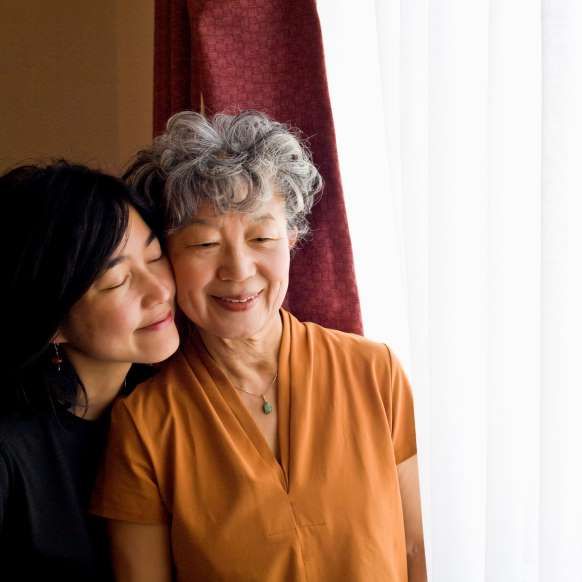 When this social construct spills over into households, Rosjke Hasseldine of Counseling Today says that it sets the stage for mother-daughter conflicts. Because both the mother and daughter feel unseen and unheard, an either-or dynamic occurs. In other words, because moms and daughters feel like their emotional needs aren't being met, they're determined to fight for the attention and support they need — even if it's at the other's expense.
When this social construct spills over into households, Rosjke Hasseldine of Counseling Today says that it sets the stage for mother-daughter conflicts. Because both the mother and daughter feel unseen and unheard, an either-or dynamic occurs. In other words, because moms and daughters feel like their emotional needs aren't being met, they're determined to fight for the attention and support they need — even if it's at the other's expense.
This belief that both a mother and daughter's needs can't be met simultaneously can also set the stage for other battles. This dynamic can cause mothers to resort to emotional manipulation, or it can make daughters feel like they need to be mind readers to make their mothers happy. At the end of the day, all of this just leads to more conflict.
3/5 Overcommunication
Photo by Andrea Piacquadio from PexelsUnlike relationships with sons that involve more shared activities, mother-daughter relationships typically include lots of talking because women are more talkative by nature.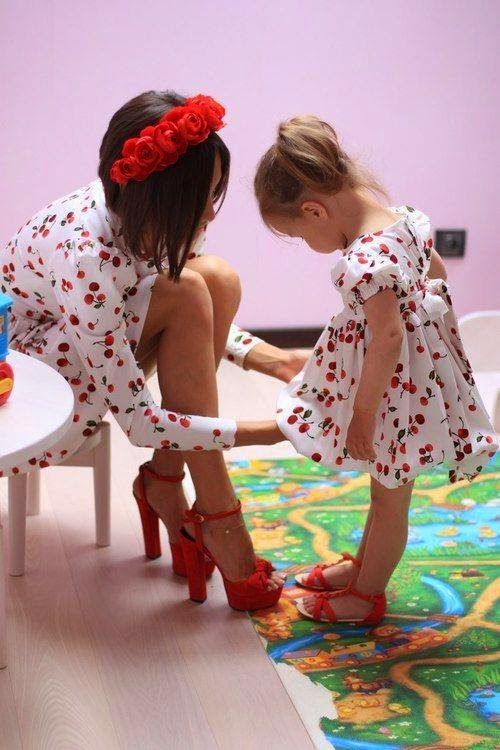 Because of this, mother-daughter relationships are bound to encounter conflicts eventually, many times due to overcommunication or an abundance of verbal expression. In other words, both moms and daughters say things that offend each other eventually because they're just talking so much.
Because of this, mother-daughter relationships are bound to encounter conflicts eventually, many times due to overcommunication or an abundance of verbal expression. In other words, both moms and daughters say things that offend each other eventually because they're just talking so much.
However, the experts at VeryWell Family say that this issue can easily be avoided if moms and daughters try doing activities together from time to time to develop their bond in different ways. While this doesn't always avoid conflicts entirely, it can help keep both mom and daughter distracted if a difficult conversation does come up during their time together.
2/5 Enmeshment
Credit: iStockAccording to Margarita Tartakovsky with PsychCentral, it can be hard for daughters to develop their own individual identities at times due to the nature of most mother-daughter relationships. In fact, many mother-daughter relationships involve enmeshment, where the mother lives through her daughter. Just like other power struggles, an enmeshed mother-daughter relationship can involve lots of conflict because daughters want to break free, yet moms worry that they will lose themselves if their daughters build their own separate identities.
Just like other power struggles, an enmeshed mother-daughter relationship can involve lots of conflict because daughters want to break free, yet moms worry that they will lose themselves if their daughters build their own separate identities.
In these cases, mothers and daughters need to learn how to separate themselves in a healthy, balanced way. While neither needs to completely cut themselves off from the other, both moms and daughters need to find a healthy balance.
1/5 Overreliance
Via PexelsIn cases where the daughter is the oldest child, moms can sometimes heavily rely on their daughter's help with caring for the house and younger siblings. Daughters take on a caretaker role and can even become the acting head of household in some situations.
However, this overreliance can cause lots of resentment for the daughter, especially as she grows up and realizes what's going on. While this type of relationship doesn't mean that the mother is incapable or even unloving, it can take years to work through and reach a stage where conflict no longer occurs because of it.
Although some mother-daughter conflicts are unavoidable, you can cut down on the amount of arguments that spring up with your daughter or even your own mom just by learning about these common conflicts. After all, knowledge is power, amiright?
READ NEXT: How I Dealt With My Love-Hate Relationship With My Mom
Sat three times. Killed mother. Fights for a daughter born in a colony. Rimma Geuta's story
- Nina Nazarova
- BBC
A Komi court decides whether a former prisoner convicted of negligently killing her own mother is capable of being a good enough mother for her daughter. Russian service BBC tells , why op y social welfare officers take away their daughter from a resident of the village on the site of the Gulag.
Village house in the village of Trakt, Knyazhpogost district, Komi Republic. Rimma Geuta, a 34-year-old short woman with bangs, focuses on the children's room: a crib with dolls, perfectly even stacks of socks and underpants in the closet, a bag of toys and a book "From nose to tail. Poems for children from two to four."
Rimma Geuta, a 34-year-old short woman with bangs, focuses on the children's room: a crib with dolls, perfectly even stacks of socks and underpants in the closet, a bag of toys and a book "From nose to tail. Poems for children from two to four."
In the nursery there is such order, which can only be in a room where the child does not yet live. nine0011 Photo caption,
Rimma Geuta
Sitting next to her in the kitchen is her common-law husband Ivan Ivanych, a strong sixty-year-old man in a red-orange "Never Give Up" T-shirt with an angel pinned to his right shoulder, sucking on a caramel with instant coffee and telling stories. Now the house is being renovated. We started with the nursery, and for good reason: Rimma Geuta, a native of Trakt, is defending in court the right to raise her daughter.
The case of Rimma Geuta's deprivation of parental rights has been heard in the Knyazhpogost District Court since September. The woman was imprisoned three times, and in her youth she was already deprived of parental rights to her eldest son. Rimma gave birth to her daughter Lilya in a penal colony, while serving a term for the murder of her own mother through negligence. Rimma loves the girl and passionately defends her right to be a mother: "I am ready for her for everything that is asked of me. I cannot live without her." nine0011
Rimma gave birth to her daughter Lilya in a penal colony, while serving a term for the murder of her own mother through negligence. Rimma loves the girl and passionately defends her right to be a mother: "I am ready for her for everything that is asked of me. I cannot live without her." nine0011
Long-awaited daughter
Rimma Geuta spent the rest of her term in a women's colony near Moscow in Mozhaisk. There, in the spring of 2017, she was met by human rights activist Natalia Dzyadko, who helped pregnant women and women who gave birth in prison. Rimma was the only one who, after meeting, continued to communicate with human rights activists. According to Dzyadko, she remembered the woman primarily for her unusually strong attachment to the girl. The questions she asked were solely related to the well-being of the child. In her letters to Dzyadko from the colony, Rimma wrote about Lilya: "I have a very long-awaited daughter <...> She is my everything. " nine0011
" nine0011
Photo author, Valery Sharifulin/TASS
Photo caption,Sewing factory at the Mozhaisk women's colony No. 5
Rimma became pregnant in a colony-settlement in Komi in 2016, while serving a sentence of six and a half years. She was transferred there two years earlier from an ordinary colony with a stricter regime for good behavior. It is easier to sit in colonies-settlements: you can wear your own clothes, move freely around the territory. Rimma worked there in the canteen, Lily's future father at the factory; so we met. nine0011
Women who get pregnant in settlement colonies must be sent back to a correctional colony with an orphanage, human rights activists explain. Formally, this is due to the fact that there are no mother and child houses in the settlements. In fact, this is a deterioration in the conditions of detention - but without a legal reason, conditions cannot be worsened. Sometimes pregnant women are prescribed violations and then they are already sent to court under a "re-regime" - that is, a change in the type of correctional institution.
image copyrightAlamy
Photo caption,Mozhaisk colony No. 5, gate in the mother and child home
Rimma was first offered an abortion in the colony-settlement. “After all, my documents were already being prepared for parole. They gave me a day to think,” she recalls. Rimma refused, she was transferred to another village, where they put cows to graze. “One day I went, and then I realized: there are ninety heads, and I won’t be able to run after them. We had another pregnant one. I say: you do what you want, but I’m leaving, my child is dearer to me.” nine0011
Rimma Geuta wrote a refusal to work - according to the law, this is a malicious violation of the regime. She was then in her fifth month. “On June 1, they brought me, on the 14th I refused to work, on July 13 I was given a temporary regimen, and on July 27 I was sent by convoy,” she says.
Photo by Valery Sharifulin/TASS
Photo caption, Inside the orphanage in Mozhaisk penal colony No. 5. The picture is not directly related to the events described. Immediately after giving birth, the woman was handcuffed. “Lilya will cry, they will unfasten me for five minutes to change the swaddle. I once again lied that I want to go to the toilet in order to at least touch her. They will take me out, I say: can I look at my girl?” - tells Rimma about the first days of Lily's life. nine0011
5. The picture is not directly related to the events described. Immediately after giving birth, the woman was handcuffed. “Lilya will cry, they will unfasten me for five minutes to change the swaddle. I once again lied that I want to go to the toilet in order to at least touch her. They will take me out, I say: can I look at my girl?” - tells Rimma about the first days of Lily's life. nine0011
A week after the birth, Rimma and her daughter returned to the Mozhaisk colony - first they brought the mother, and a few days later the girl was brought separately. A few months later, Rimma managed to get a job in the dining room in the prison mother and child home: “I’ll take Lilya from the group, put her on the street in a stroller, and take the potatoes outside to peel, so that my child can at least breathe.”
Rimma and Lilya were released and arrived in their native Trakt on June 30, 2018. Guardianship appeared after a month and a half. nine0011
"I'm sitting and getting free"
Rimma Geuta summarizes her biography as follows: "I can't say anything good about my life, because there probably wasn't anything good. - I'm freeing myself, I'm sitting, I'm freeing myself.
- I'm freeing myself, I'm sitting, I'm freeing myself.
The highway where she grew up is located 25 kilometers from the regional center, the city of Yemva. Locals often call Yemva by the name of the railway station - Knyazhpogost. This is the former territory of the Gulag: from 1938 to 1950, there was Sevzheldorlag on the territory of Yemva, almost 85 thousand people were sitting here at the same time. The names of the microdistricts of the city were once the numbers of the camps. nine0011
Skip Podcast and continue reading.
Podcast
What was that?
We quickly, simply and clearly explain what happened, why it's important and what's next.
episodes
The End of History Podcast
The penitentiary is still here. It is reminiscent of a building with a large sign "FKU OIU OUHD UFSIN of Russia" opposite the city administration. Syktyvkar human rights activist Ernest Mezak calls these places "complete Dovlatovism" - it is here that the writer Sergei Dovlatov served in the VOKhR in his youth, and it is in the Knyazhpogostsky district that the action of the novel "Zone" takes place. A resident of Leningrad and an ex-student of the philological faculty described his impressions in the novel as follows: "On both sides of the ban lay a single and soulless world." nine0011
Syktyvkar human rights activist Ernest Mezak calls these places "complete Dovlatovism" - it is here that the writer Sergei Dovlatov served in the VOKhR in his youth, and it is in the Knyazhpogostsky district that the action of the novel "Zone" takes place. A resident of Leningrad and an ex-student of the philological faculty described his impressions in the novel as follows: "On both sides of the ban lay a single and soulless world." nine0011
Rimma's father sat when he wasn't sitting - he worked on shifts. He beat very hard: "If I was late - I said before nine, and came at five past ten, then I already got a boiler in the ass." Mother, when Rimma was ten, and her younger brother was a year old, became disabled: she lost her sight in a drunken family fight.
At the age of 17, Rimma gave birth to a son. At the age of 19, for the first time, she "came" to the zone - they robbed an apartment with her girlfriends. Rimma's grandmother took custody of her son. In 2010, Rimma ended up in prison for a year and a month for a fight with a neighbor: “She started calling me names, I interfere with the stove with a poker, and she is behind with a knife. Well, that’s all, I was immediately blocked and beaten.” nine0011
Well, that’s all, I was immediately blocked and beaten.” nine0011
In 2011, Rimma was released once again, returned to Trakt and officially got married (Geuta is her husband's surname). New Year 2012 was celebrated in a family way - with her husband, mother and brother. We drank.
"Well, in the end it turned out that I stabbed my mother to death. They accused me of being called names by my mother for my immoral lifestyle, and I kind of grabbed a knife and stabbed her with a knife. My mind went crazy when I heard about my mother in the duty room ] "died". And on January 1 they shut me up. I spent three months in the wild." nine0011
Rimma's husband (already former) was the main prosecution witness in court. Now he is sitting too. "God is not Yashka, he sees who is having a hard time," Rimma gloomily comments on this fact.
Image caption,The road to Trakt
Rimma's brother was imprisoned for a year and a half while she was in prison. "For stealing, he doesn't tell me," Rimma notes. Should be released in December.
"For stealing, he doesn't tell me," Rimma notes. Should be released in December.
Rimma's eldest son studies in Syktyvkar, the nearest large settlement to the Trakt. After the death of Rimma's grandmother, guardianship was issued by a family from Yemva, who, when a woman tried to establish contact with her son, "asked to leave him alone until the age of 18." The young man will become an adult next year. nine0011
Little Lily's father is already free, he shows no interest in his daughter. During Rimma's conversation with the correspondent of the BBC Russian Service, he calls back, Rimma puts the phone on speakerphone:
- Why did you call?
- Are you not interested in your daughter at all?
- My daughter is in the hospital, the trial is tomorrow, I know what's next?
- Would you like to help your daughter in any way?
- Rimma, you yourself told me that you will give birth for yourself, even if I am not with you.
The whole village is watching the mother's struggle for her daughter. Neighbor Aunt Galya, a retired school teacher, brought milk to little Lily in the morning and went to the district center to testify in favor of Rimma. She explains: “The child was always cleanly dressed, she was always fed. Constantly washed. The child is gold, an angel, all the time “mother, mother” - she runs after her mother. Rimma’s lifestyle, of course, needs to be changed, I tell her directly, but It is always easier for the authorities to take the child away than to help. First you need to help. But no one helps her." nine0011 Photo caption,
Trakt village, Knyazhpogost district, Komi Republic. Aunt Galya carried the milk of this particular cow to little Lilya.
"If the girl is gone, what's her life like? - another neighbor at the water pump enters into a dialogue. - Why the hell should she live? You understand yourself. Everyone drinks. And we drank, and I raised four. We can't take a child * **. I think so".
We can't take a child * **. I think so".
Another villager talking to a BBC correspondent on condition of anonymity says:
- Do you know that she was sitting? nine0011
- I know.
- For what, you know?
- I know.
- That she had a son and was deprived of her rights, you know?
- I know.
- Well?
"She killed her own mother, you understand?"
On August 13, Rimma Geuta was returning home from her birthday with Lily in her arms. "I was, - Rimma chooses words, - intoxicated. Well, drunk."
Someone from the neighbors called for guardianship from the regional center. Rimma ran to her neighbor Aunt Galya for help and tried to leave the child with her, but the guardianship employees did not allow it, reassuring Rimma that the girl would be taken to the hospital and given away as soon as she came for her. The hospital is a standard practice when a child is removed from the family: he is isolated for a short time in the infectious diseases department and the necessary tests are taken. Everything happened as the social workers promised, but Rimma was also fined for failure to fulfill parental responsibilities under article 5.35 of the Code of Administrative Offenses. nine0011
The hospital is a standard practice when a child is removed from the family: he is isolated for a short time in the infectious diseases department and the necessary tests are taken. Everything happened as the social workers promised, but Rimma was also fined for failure to fulfill parental responsibilities under article 5.35 of the Code of Administrative Offenses. nine0011
On September 5, Rimma and her friend went to a store in Trakt, asking her friend's husband to look after the girl - according to the woman's recollections, her daughter was eating chicken at that moment. While they were gone, guardianship came again, broke the lock (the man did not open the door) and took the girl away without waiting for her mother.
One of the complaints, Rimma explains, was that the girl was without panties - but she does not see anything criminal in this fact. Lily, according to her, did not have time to go to the potty and simply pulled off the tights described, and her friend's husband did not know where to look for dry linen. nine0011
nine0011
The act of taking the child away does not mention this episode, but states that the mother "failed to fulfill the responsibility of ensuring the development" of her daughter, and that the life and health of the girl are threatened by living conditions and "leaving the child with an alcohol-abusing mother." This was told by an employee of the administration of the Tract.
Image caption,One of the houses in Trakt
In a conversation with the BBC correspondent, she asked not to be named, explaining that she did not act on her own initiative: "There was a signal, you can say that it was anonymous. We are like the administration reported to the guardianship, we are obliged, you understand, we are obliged to respond. Rimma is such a complex person. She causes fear, so I don’t want my name to appear somewhere. She killed her own mother, you understand? I am afraid for my life, so you arrange?" nine0011
Specialists of the guardianship sector (there are three of them per 20,000 inhabitants in the Knyazhpogost district) do not give comments to journalists.
Rimma in the house given to her by the administration
According to Rimma Geuta, the real reason for such close attention of guardianship to her is the conflict with the village administration over housing. While she was serving her final term, the six-apartment hut where the woman was registered was demolished. The administration claims that it was dismantled by the residents themselves. According to the law, the administration was supposed to provide Rimma and her daughter with alternative housing, but in the end they were given a dilapidated house without electricity. According to the same neighbor Aunt Galya, the house was in such a bad condition that it was scary to go inside: "I stood there, tears flowed." nine0011
Rimma began to demand normal housing. She is sure that the authorities of the village in response set guardianship. The head of the administration of the Tract, Mikhail Klochko, told the BBC correspondent that "Rimma was provided with housing, although temporary, but if she hadn't been drinking, the child would have been with her. " Klochko clarified that he did not personally know the woman and judged by the reviews of his subordinates.
" Klochko clarified that he did not personally know the woman and judged by the reviews of his subordinates.
A room in a house allocated to Rimma by the local authorities
Rimma leads to show the house where she and her daughter were offered to live, and spreads her arms: the floor collapsed to the ground, a closet that Rimma took apart for firewood to heat the stove (there was no other heating) and above all this, it is not known how the preserved portraits on the wall - Lermontov and Yesenin. nine0011
Common sense is different for everyone
Diana Zevina, an employee of the Our Children Charitable Foundation, explains that in Russia the decision whether to leave a child in a family or not is made on a case-by-case basis: "In our country there are no uniform standards for evaluating risks and resources of the family for the child. Too often caregivers use their own common sense, and everyone's common sense is different. "
"
The opinion that there are children in the orphanage that parents do not need is a myth, the expert says. In fact, most children go there from families where parents have encountered difficulties - psychological, social or economic, and as a result simply did not cope with their upbringing. Only for a small part of children in orphanages it would be really dangerous to stay at home, Zevina believes. In other cases, if the birth family had been helped in time, the orphanage could have been dispensed with. nine0011
The author of the photo, Ekaterina Bogdanova
Photo caption,Diana Zevina
Diana Zevina directs the "Do not spill water" program at the "Our Children" foundation. It is aimed at restoring the links of children from orphanages with the birth family. According to the expert, support for the child's family, including in difficult life situations, is a vector of Russia's state policy in recent years: "At some point, it became clear that the orphanage is not a solution to the problem, and a foster family is also not always a solution to the problem. ". nine0011 Image caption,
". nine0011 Image caption,
Toys in Lily's new room in Ivan Ivanych's house. This room has been refurbished.
This trend, explains Zevina, is due to the growing awareness in society that it is very important for a child to be with their loved ones. “It is separation and placement in a collective living institution that is traumatic for a child, and the smaller it is, the more severe the consequences. But we have not taken this trauma into account yet. his condition, the presence or absence of work from parents, food, toys, clothes. nine0011
Now one of the new areas of work for charitable foundations in Russia is helping families in difficult life situations: groceries, repairs, employment, teaching parenting skills or fighting addictions. In addition to the "Our Children" fund, for example, there is a similar program in the "Volunteers to Help Orphans" fund.
Among families in a difficult life situation, says Zevina, predictably they drink a lot of alcohol. However, the expert explains, there are parents who can take care of the child "more or less adequately and while in a state of intoxication, or entrust it to someone." nine0011
However, the expert explains, there are parents who can take care of the child "more or less adequately and while in a state of intoxication, or entrust it to someone." nine0011
"In any case, the loss of emotional connections for a child is much more traumatic than life with an alcoholic. Although life with an alcoholic is also traumatic," emphasizes Zevina.
"Why is she such a bad mother?"
Rimma solved the housing problem on her own: when Lilya was taken away for the second time, she found a roommate, 61-year-old Ivan Ivanovich. “I asked because we knew each other for a long time. I say: help me, such a situation, I can’t live without a child,” the woman retells the dialogue. “Rome, but for God’s sake, I still work on shifts. Live. Well, I'm not afraid of work." nine0011 Image caption,
Lily's children's room
First of all, we made a room for our daughter: now there is furniture, clothes and toys on the shelves and cupboards. On the mezzanine - a tiny pink backpack bought for kindergarten. In the big room there is a folding sofa, wardrobe, TV, in the kitchen there is a huge fridge and heater. Two rooms are under renovation.
On the mezzanine - a tiny pink backpack bought for kindergarten. In the big room there is a folding sofa, wardrobe, TV, in the kitchen there is a huge fridge and heater. Two rooms are under renovation.
Another standard guardianship requirement - to register with the employment center - Rimma plans to fulfill. In recent months, she has earned a living by picking lingonberries, blueberries and cranberries in the forest and selling them on the Syktyvkar-Ukhta highway. Ivan Ivanych used to work in the track department on the railway, and now, like many men in the Trakt, he "watches" - he travels a month after a month to work as a security guard in the city of Usinsk, where 60% of Komi oil is produced. nine0011 Photo caption,
Railroad in Yemva
When asked if Ivan Ivanovich drinks heavily, Rimma asks again: "No, how can I say it - a lot or not a lot? Every or not every day, right? No, [not each]".
Ivan Ivanych approached the role of stepfather as best he could, responsibly: soon after guardianship took the child away, he hired a car to go with Rimma to the hospital. Went to court to testify. He promises to issue a power of attorney for Rimma so that she can receive his pension while he is on duty. This is 16,000 plus 30,000 "shift" wages. nine0011 Image caption,
Went to court to testify. He promises to issue a power of attorney for Rimma so that she can receive his pension while he is on duty. This is 16,000 plus 30,000 "shift" wages. nine0011 Image caption,
Ivan Ivanych
"I'll tell you honestly," he says about his new cohabitant, "I'm generally a leftist person, I just pity her. I'm sorry and I want the child to be with his mother, and not somewhere in a boarding school. Why is she, ***, such a bad mother?"
Even those locals who do not approve of Rimma Geuta's lifestyle admit that the girl is really attached to her mother. “Rimma should stop drinking. She kept it clean. And Lilya reaches out to her all the time." nine0011
Lilya has been living behind glass for a month and a half in an infectious ward at a hospital in Yemva with older girls. “I had a regime in the zone,” Rimma remarks. “And she has a regime here.”
The next court hearing in the case of Rimma's parental rights will take place on October 30th. While the woman monitors her daughter's life on the phone ("if the nurse is good, they even let her talk") and brings packages - diapers and juice. Rimma's nurses are sympathetic and allow a sneak peek at her daughter. The main thing is that the girl herself does not notice this - otherwise she begins to sob that she wants to go to her mother. nine0011
While the woman monitors her daughter's life on the phone ("if the nurse is good, they even let her talk") and brings packages - diapers and juice. Rimma's nurses are sympathetic and allow a sneak peek at her daughter. The main thing is that the girl herself does not notice this - otherwise she begins to sob that she wants to go to her mother. nine0011
One of the author's digressions in Dovlatov's "Zone", which is impossible not to remember in the Trakt, ends with the words: "God grant us stamina and courage. And even better - circumstances of time and place conducive to good."
On October 31, 2018, the Knyazhpogostsky District Court of the Komi Republic satisfied the guardian's claim to deprive Rimma Geuta of parental rights.
.
Why narcissistic mothers are dangerous and how they ruin the life of their daughters
When reading books about the relationship between mothers and daughters, Dr. Caryl McBride cried every time. She could not understand why she could not remember the feelings of affection and love in her childhood, and she really wanted to find an explanation for this. Thus was born the book Good Enough, in which McBride, based on real stories, explores (for the first time!) the problem of maternal narcissism and its impact on the lives of daughters.
She could not understand why she could not remember the feelings of affection and love in her childhood, and she really wanted to find an explanation for this. Thus was born the book Good Enough, in which McBride, based on real stories, explores (for the first time!) the problem of maternal narcissism and its impact on the lives of daughters.
“Both boys and girls suffer from the disruption of emotional bonds when one of the parents is a narcissist. However, the mother also serves as a role model for the growing daughter,” says Caryl McBride. nine0011
The narcissistic mother encourages her daughter to respond to the world in the way she does herself, and not in the way the child suits. The girl constantly tries to guess the reaction of her mother and adapts to her in order to earn approval and love. Of course, she does not understand that such behavior serves only the interests of the mother.
“Unconditional acceptance of a child as a unique individual is a necessary condition for a girl to grow into a confident woman. If you had a narcissistic mother, you were deprived of that,” McBride writes. The concept of love in daughters of narcissistic mothers is distorted. In childhood, they try to earn the approval of their mother. Their definition of love is to please another without expecting anything in return. This negatively affects the girls' future romantic relationships. nine0011
If you had a narcissistic mother, you were deprived of that,” McBride writes. The concept of love in daughters of narcissistic mothers is distorted. In childhood, they try to earn the approval of their mother. Their definition of love is to please another without expecting anything in return. This negatively affects the girls' future romantic relationships. nine0011
Moreover, the patterns and narcissistic traits learned in childhood, grown-up girls, becoming mothers, can be transferred to their daughters and reward the next generation of women of their kind with narcissistic traits.
9 characteristics of narcissistic mothers
In everyday life, arrogant people who are obsessed with themselves and their desires are called narcissists. In psychology, narcissism is a spectrum disorder that can manifest itself in many ways, from a few character traits to a full blown narcissistic personality disorder. According to the American Psychiatric Association, approximately one and a half million women in the United States suffer from narcissistic personality disorder. nine0011
nine0011
The Diagnostic and Statistical Handbook of Mental Disorders identifies nine characteristics of narcissistic personalities.
1. Have an inflated sense of self-importance , may exaggerate their achievements and talents, or expect to be recognized as superior in any situation. For example, a mother speaks only about herself, does not ask her daughter questions, is not going to listen to her, but only shares her news and feelings.
2. Constantly fantasize about limitless success, power, incredible achievement, beauty, or perfect love. nine0016 For example, a mother earns money cleaning houses and is sure that her famous clients will help her become famous herself.
3. They believe they are special and unique so they can only be understood by people who are just as special or have a high status. The rest are despised. For example, a mother takes the family to a restaurant and treats the waiters like servants.
4. They crave excessive admiration. Example: A mother demands to be thanked, praised and complimented for everything she has ever done for you. nine0011
Example: A mother demands to be thanked, praised and complimented for everything she has ever done for you. nine0011
5. They think that everyone owes them. These are unrealistic expectations that other people will treat them especially well or automatically meet their expectations. For example, a mother is sure that she is too important a person to stand in line.
6. They exploit others , that is, they use others to achieve their own goals. For example, a mother is friends only with those who can be useful to her.
7. Demonstrate a lack of empathy : do not want to notice the needs of other people or cherish their feelings. For example, a mother constantly points out her daughter's "mistakes", criticizes and humiliates her.
8. Often envious of others or feel that they are the object of envy of others. For example, a mother claims that she has no girlfriends because women are jealous of her.
9. Demonstrate arrogance, arrogance and attitude. For example, a mother believes that her children are too good and should not play with peers from less wealthy families. nine0011
For example, a mother believes that her children are too good and should not play with peers from less wealthy families. nine0011
The degree of narcissism can vary. McBride emphasizes that even if your mother doesn't have all nine traits of people with severe narcissistic personality disorder, her narcissism still hurt you. If this is so, then throughout your life you are haunted by three destructive installations:
- Something is wrong with me.
- My value is in what I do, not in who I am.
- It's impossible to love me.
10 relationship problems with narcissistic mothers
In her research on maternal narcissism, McBride identified ten common relationship problems between mothers with narcissistic traits and daughters. It doesn't matter if you have experienced all the features in your life or only some of them. This only indicates how clearly narcissism is expressed in the behavior of your mother.
1. You notice that you are constantly trying to win the love, attention and approval of your mother, but you fail to please her. nine0016 Narcissistic mothers are critical and do not accept their daughters as they are.
nine0016 Narcissistic mothers are critical and do not accept their daughters as they are.
2. The mother emphasizes that what matters to her is how something looks, and not how you feel about it. Your emotions don't matter to her. She consoles you not with hugs, but with buying new clothes.
3. Your mother is jealous of you: because of your appearance, material well-being, achievements, education, and even because of your relationship with your father.
4. Narcissistic mothers control the interests and activities of their children and do not support their daughters in what they really want. nine0016
5. Everything in the family always revolves around the mother. Narcissists do not tolerate rejection and want everyone to obey their wishes.
6. The mother is unable to show empathy. The feelings of a daughter growing up next to her are not taken seriously, and she does not feel her own importance. Regardless of age, such daughters may withdraw, stop talking about themselves, or even notice their feelings.
7. The mother cannot cope with her own emotions. nine0016 She "stiffens" or "disappears" when it comes to feelings. She does not allow herself or her daughter to express what is in her soul - their relationship is doomed to remain superficial, there is no deep connection in them.
8. Mother often criticizes and condemns. She does it because she doesn't like herself. In this way, she raises her daughters to be extremely sensitive to other people's opinions and makes them constantly feel like they are not good enough.
9. Your mother treats you like a friend, not like a daughter. nine0016 In a healthy relationship, the mother plays the role of an adult and takes care of the child. Mothers with narcissistic traits did not receive proper care from their parents in childhood, therefore, emotionally, they resemble children who constantly need support.
They often involve their young daughters in the adult world, for example by sharing their relationship difficulties with their husband. In this case, the daughter begins to feel loneliness and danger - she does not have a parent to rely on. She feels guilty about not being able to solve her mother's problems and internalizes the "I'm not good enough" mentality. nine0011
In this case, the daughter begins to feel loneliness and danger - she does not have a parent to rely on. She feels guilty about not being able to solve her mother's problems and internalizes the "I'm not good enough" mentality. nine0011
10. There are no personal boundaries in your communication with your mother. Emotional separation is an essential part of psychological growth, but the narcissistic mother does not allow her daughter to become a separate person. In family life, she has no boundaries, there is nothing personal. For a narcissistic mother, a child is an extension of herself: she can talk to her daughter on the most inappropriate topics, she has the right to interfere in everything and share information with anyone.
How narcissism manifests itself: an absorbing and ignoring mother
A mother can only pass on knowledge, confidence and self-love to her daughter if she herself has these skills. Moreover, for this to be successful, a woman must build a deep and balanced relationship with her daughter.
Narcissism is the opposite of balance. In the families of narcissistic mothers, everything is taken to the extreme. “Staying true to intergenerational twisted love, most narcissistic mothers place either too much emphasis on raising their daughters (absorbing mother) or very little (ignoring mother),” McBride writes. nine0011
The absorbing mother overwhelms her daughter with care, dominates every aspect of her life and keeps them under control
She makes all decisions for her daughter and tells her what to wear, how to behave, what to say, think and feel correctly.
Such mothers often seem wonderful. They are involved in the life of their daughters, doing something for them, for them and together with them, so others perceive them as interested parents. Alas, the consequences of such behavior are sad. As a result, daughters have low self-esteem, they often feel their own worthlessness. nine0011
An ignoring mother, on the contrary, does not pay enough attention to her child. She does not take or deny the feelings of children seriously. Excluding especially difficult cases, such parents provide the child financially: their own room, food, clothes, but they refuse their daughters upbringing, emotional support and empathy. Therefore, they feel invisible and begin to think that as individuals they do not matter.
She does not take or deny the feelings of children seriously. Excluding especially difficult cases, such parents provide the child financially: their own room, food, clothes, but they refuse their daughters upbringing, emotional support and empathy. Therefore, they feel invisible and begin to think that as individuals they do not matter.
McBride emphasizes that the two styles described are not mutually exclusive. The narcissistic mother can switch from absorbing to ignoring and back again. In addition, she can choose the type of behavior in relation to her daughters: with one daughter, she can be an absorbing mother, and with another, an ignoring one. nine0011
Perfectionism and Sabotage: How Children React to Mother's Narcissism
When two daughters are raised by the same narcissistic mother, they often take on very different roles. Both girls think they are loved for what they do, but behave differently. One sister, as it were, says to the narcissistic mother: “OK, I will show you what I am capable of and what I am worthy of. ” She becomes a perfectionist who constantly strives to achieve more. Another sister, having adopted the same attitude, begins to believe that everything is meaningless and she will not achieve anything anyway. She goes into passivity and self-sabotage. nine0011
” She becomes a perfectionist who constantly strives to achieve more. Another sister, having adopted the same attitude, begins to believe that everything is meaningless and she will not achieve anything anyway. She goes into passivity and self-sabotage. nine0011
Growing up, successful daughters seem like superheroes, but their achievements and high performance do not bring satisfaction or inner comfort.
They are constantly struggling with a sense of failure and never notice how much has already been done. They are constantly looking for what else they can do to prove their worth, and often work themselves up to burnout and chronic fatigue syndrome. There are no problems if you are successful, doing what you love, while praising yourself and taking care of yourself. nine0011
Alas, many super-successful daughters, suffering from workaholism, cannot slow down, which leads them to health problems. Here's proof that I can't be who you want me to be!" They give up easily, try to numb the pain with addictions, are unable to break free from self-destructive habits, and refuse to realize their potential.
As they get older, these daughters start looking for a replacement mother, someone who can take care of them. They are smart, talented and capable of many things, but they do not believe in themselves. So they find alternative unhealthy ways to get other people to take care of themselves: huddling in the basement of an aunt's house, ending up in jail, or living on welfare or unemployment benefits. nine0011
How to overcome childhood trauma
The third part of his book McBride devotes entirely to the process of recovery. She provides many exercises that can help you accept and live through traumatic experiences, and also recommends contacting a psychotherapist. The specific steps to recovery for the daughters of narcissistic mothers are as follows:
- Embrace the limitations and grieve over not having the mother you dreamed of. nine0004
- Separate psychologically from the mother and reformulate the negative beliefs received from her into positive ones.

- Accept your own feelings, desires and personality.
- Learn to communicate with your mother in a new, more environmentally friendly way.
- Learn to recognize your own narcissistic traits and decide not to pass on this emotional legacy to your children.
- Teach yourself to grieve.
In her twenty-eight years as a psychotherapist, McBride has noticed that most people try to skip the last step. This is quite expected, because breaking through denial and feeling pain is incredibly difficult. Meanwhile, mourning is the most important step that plays a decisive role in the process of change. nine0011
It starts with one decision: you allow your feelings to be. This needs to be learned, especially if you have been told all your life to shut up, not to grunt or not feel anything, to lie and pretend that everything is in order when in fact it is not.
You can try to rationalize the pain by thinking, "I shouldn't feel this way" or "It wasn't all that bad. " It won't help. Whatever emotions you experience, it is important to let them be. Sometimes this will require being alone in silence. It is important to live without being distracted and without becoming dependent on work or any other that drowns out emotions. nine0011
" It won't help. Whatever emotions you experience, it is important to let them be. Sometimes this will require being alone in silence. It is important to live without being distracted and without becoming dependent on work or any other that drowns out emotions. nine0011
Take time to be alone and grieve. Do this several times until you begin to feel relieved.
Let the emotions leave the body at their own speed. To do this, you can stay at home alone, take long walks, run, go to the mountains, drive or sit in a coffee shop. Find what is comfortable for you.
During the mourning process, you will go through five stages: acceptance, denial, bargaining, anger, depression. It is important to go through them all and finally accept the fact that your mother is really narcissistic and did not give you the love that you wanted and needed. Only then can you truly live the grief. nine0011
For effective mourning, McBride recommends:
- Keep a diary. It symbolizes a serious attitude towards recovery.
 Writing down feelings is another way to let them go. Keeping a diary provides an opportunity to free yourself from trauma.
Writing down feelings is another way to let them go. Keeping a diary provides an opportunity to free yourself from trauma. - Do not listen to other people's opinions while you are in this process. With the best of intentions, friends and relatives will say something like: “Yes, forget about it already”, “You cannot change the past, stop trying” and “Stop thinking about the past, live here and now.” They don't understand that if you don't face your sadness, it will stay with you forever. nine0004
- Let the guilt be. Guilt will inevitably come. McBride notes that in almost every clinical session and every interview, the daughters of narcissistic mothers admitted that they were uncomfortable because they talked about their mothers in a negative way. This is a cultural taboo that will have to be overcome in order to heal from trauma.
- Grieving for the little girl you failed to become because you had to take care of your mother early, and sometimes the whole family.
 nine0004
nine0004
How to communicate with your mother in recovery
At this stage of healing, it is important to explore ways to manage your relationships and maintain the ability to behave in a healthy way. You have changed, but your mother has not.
McBride argues that in full blown narcissistic personality disorder there is little chance of effective treatment or change. The desire to change is important here, and narcissistic clients, when contacting a therapist, try to quickly find answers to questions about how to interact with other people. They do not assume that the problem may be in themselves, and quickly leave, believing that something is wrong with their therapist. nine0011
A narcissistic mother can be too toxic, so it's important for a daughter to make the decision to break contact with her mother during recovery. If the mother is unable to change and you are constantly attacked and insulted by her, it is important to understand that cutting off contact with her is the healthier solution.
Due to the rarer communication, your contact will become polite. It is important not to expect anything from the mother, then you will experience less disappointment. McBride elaborates that this schema works best after you complete the healing process by accepting your mother's limitations and truly separating from her. nine0011
How to forgive your mother and is it necessary?
You do not have to wait for your mother's approval by moving away from her during therapy. If she does not leave you alone, you will have to learn to set personal boundaries. “Be clear about what you will and will not do,” McBride writes.
Many people are afraid to express their boundaries because they worry about the feelings of others. Daughters are also often afraid to install them because mothers might get angry. This fear is very real, as narcissists often cut people out of their lives. nine0011
It is important to understand that the mother has already left you emotionally, there is little she can do to harm you on a similar scale. come to you for dinner on Sundays. I need to be alone and I won't call you. When I'm done, I'll let you know. You don't need to call me for a while unless absolutely necessary. I'm not angry, and all this has nothing to do with you. It's just what I need right now." The mother may ask if everything is all right with you, and you can emphasize that everything is fine with you and you are not angry with her. nine0011
come to you for dinner on Sundays. I need to be alone and I won't call you. When I'm done, I'll let you know. You don't need to call me for a while unless absolutely necessary. I'm not angry, and all this has nothing to do with you. It's just what I need right now." The mother may ask if everything is all right with you, and you can emphasize that everything is fine with you and you are not angry with her. nine0011
It happens that the mother keeps calling, coming to your house, manipulating. “Your task is to keep the boundaries and not react after you have informed her about it. She rings the doorbell, you don't open it. She calls on the phone, you don't pick up. She speaks to you, you once again confirm the seriousness of your intentions. How she handles this situation is her problem, not yours. You are not responsible for her feelings. You can act kind and gently remind her that you will start communicating with her again when you are able to do so. nine0011
Many are taught from childhood that good girls forgive and forget insults.
